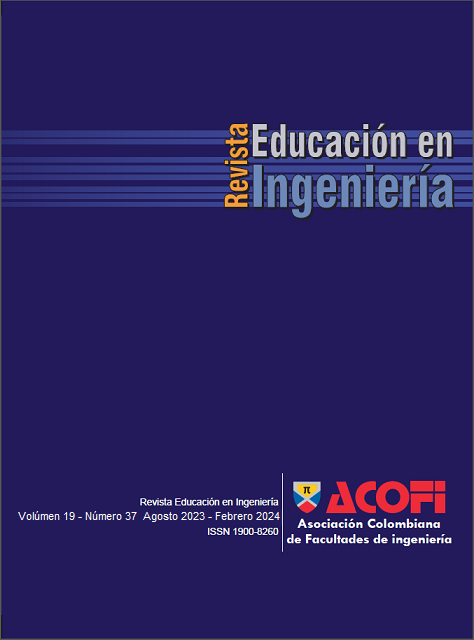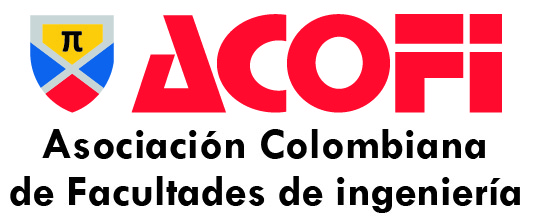Applying a New Game Element Called Backward Grading For Student Engagement
DOI:
https://doi.org/10.26507/rei.v19n37.1278Keywords:
Backward grading, gamification, emerging technologies, gamified learning, game elementsAbstract
Student engagement refers to how actively involved and enthusiastic a student is about their learning process. Engaged students are actively involved in their education, show a willingness to learn, and are motivated to achieve their academic goals. Student engagement is important for learning activities and can be achieved via gamification. In this work, a gamification approach was designed that incorporates game elements such as tournament, teams, multidisciplinary challenges, grading, backward grading, badges, points, and leaderboard. Especially the new game element backward grading is designed to achieve student engagement. The game element grading promotes competitions among student teams. On the other hand, the novel game element backward grading promotes contributions to competitions. The designed gamification setting is applied to an emerging technologies course, and the results show that student engagement is achieved.
Downloads
References
A. H. S. Metwally, L. E. Nacke, M. Chang, Y. Wang, & A. M. F. Yousef, “Revealing the hotspots of educational gamification: An umbrella review”, International Journal of Educational Research, 109, 2021, pp. 101832. https://doi.org/10.1016/j.ijer.2021.101832
K. Aleksić-Maslać, M. Rašić, & P. Vranešić, “Influence of gamification on student motivation in the educational process in courses of different fields”, In 2018 41st international convention on information and communication technology, electronics and microelectronics (MIPRO) (pp. 0783-0787). IEEE, 2018, May. https://doi.org/10.1109/EDUCON45650.2020.9125108
M. Milosz, & E. Milosz, “Gamification in Engineering Education–a Preliminary Literature Review”, In 2020 IEEE Global Engineering Education Conference (EDUCON) (pp. 1975-1979). IEEE, 2020, April. https://ieeexplore.ieee.org/document/9125108
A. Khaldi, R. Bouzidi, & F. Nader, “Gamification of e-learning in higher education: a systematic literature review”, Smart Learning Environments, 10(1), 10, 2023.
M. M. Alhammad, & A. M. Moreno, “Gamification in software engineering education: A systematic mapping”, Journal of Systems and Software, 141, 131-150, 2018. https://doi.org/10.1016/j.jss.2018.03.065
R. I. Malas, & T. M. Hamtini, “A gamified e-learning design model to promote and improve learning”, International Review on Computers and Software, 11(1), 8-19, 2016. https://doi.org/10.15866/irecos.v11i1.7913
F. Moreira, M. J. Ferreira, D. F. Escudero, C. S. Pereira, & N. Durão, “Teaching and learning Modelling and Specification based on gamification”, In 2020 15th Iberian Conference on Information Systems and Technologies (CISTI) (pp. 1-6). IEEE, 2020, June. https://ieeexplore.ieee.org/document/9140829
T. D. Indriasari, A. Luxton-Reilly, & P. Denny, “Improving student peer code review using gamification”, In Proceedings of the 23rd Australasian Computing Education Conference (pp. 80-87), 2021, February. https://doi.org/10.1145/3441636.3442308
F. Portela, “A new and interactive teaching approach with gamification for motivating students in computer science classrooms”, In First International Computer Programming Education Conference (ICPEC 2020). Schloss Dagstuhl-Leibniz-Zentrum für Informatik, 2020. https://doi.org/10.4230/OASIcs.ICPEC.2020.19
S. Shorn, “Teaching computer programming using gamification”, In Proceedings of the 14th, 2018.
A. Rojas-López & E. G. Rincón-Flores, “Gamification as learning scenario in programming course of higher education”, In International Conference on Learning and Collaboration Technologies (pp. 200-210). Springer, Cham, 2018, July.
B. Marín, J. Frez, J. Cruz-Lemus & M. Genero, “An empirical investigation on the benefits of gamification in programming courses”, ACM Transactions on Computing Education (TOCE), 19(1), 1-22, 2018. https://doi.org/10.1145/3231709
J. Maiga & A. W. R. Emanuel, “Gamification for Teaching and Learning Java Programming for Beginner Students-A Review”, J. Comput., 14(9), 590-595, 2019. https://doi:10.17706/jcp.14.9.590-595
A. F. Barriales, J. V. Paragulla & L. Andrade-Arenas, “Gamification as part of teaching and its influence on learning computational algorithms”, In 2020 IEEE World Conference on Engineering Education (EDUNINE) (pp. 1-4). IEEE, 2020, March. https://doi.org/10.1109/edunine48860.2020.9149510
L. R. Begosso, L. C. Begosso, D. S. da Cunha, J. V. Pinto, L. Lemos & M. Nunes, “The Use of Gamification for Teaching Algorithms”, In FedCSIS (Communication Papers) (pp. 225-231), 2018, September. https://doi.org/10.15439/2018f165
V. Jusas, D. Barisas & M. Jančiukas, “Game elements towards more sustainable learning in object-oriented programming course”, Sustainability, 14(4), 2325, 2022. https://doi.org/10.3390/su14042325
D. Dicheva, C. Dichev, L. Cassel, B. Guy & K. Irwin, “Exploring the Impact of Non-conventional Gamification Elements on Student Motivation and Engagement”, In 2021 IEEE Frontiers in Education Conference (FIE) (pp. 1-9). IEEE, 2021, October.
D. Kučak & M. Kučak, “Gamification in computer programming education–systematic literature review”, In 2022 45th Jubilee International Convention on Information, Communication and Electronic Technology (MIPRO) (pp. 517-520). IEEE, 2022, May. DOI: 10.23919/MIPRO55190.2022.9803457
P. E. Anderson, C. Turner, J. Dierksheide & R. McCauley, “An extensible online environment for teaching data science concepts through gamification”, In 2014 IEEE frontiers in education conference (FIE) proceedings (pp. 1-8). IEEE, 2014, October. https://doi.org/10.1109/fie.2014.7044205
X. Liu, “A small java application for learning blockchain”, In 2018 IEEE 9th Annual Information Technology, Electronics and Mobile Communication Conference (IEMCON) (pp. 1271-1275). IEEE, 2018, November. https://doi.org/10.1109/iemcon.2018.8614961.
H. Hamann, C. Pinciroli & S. von Mammen, “A Gamification Concept for Teaching Swarm Robotics”, In 2018 12th European Workshop on Microelectronics Education (EWME) (pp. 83-88). IEEE, 2018, September. https://doi.org/10.1109/ewme.2018.8629397
D. A. Isabelle, “Gamification of entrepreneurship education”, Decision Sciences Journal of Innovative Education, 18(2), 203-223, 2020. https://doi.org/10.1111/dsji.12203
M. Piteira, C. Costa & M. Aparicio, “Computer programming learning: how to apply gamification on online courses?”, Computer programming learning: how to apply gamification on online courses? (2), 2018. https://doi.org/10.20897/jisem.201811
L. Feldbusch, F. Winterer, J. Gramsch, L. Feiten & B. Becker, “SMILE Goes Gaming: Gamification in a Classroom Response System for Academic Teaching”, In CSEDU (2) (pp. 268-277), 2019.
M. A. Alsubhi, N. S. Ashaari & T. S. M. T. Wook, “Design and evaluation of an engagement framework for e-learning gamification”, International Journal of Advanced Computer Science and Applications, 12(9), 2021.
A. Puig, I. Rodríguez, Á. Rodríguez & I. Gallego, “Evaluating Learner Engagement with Gamification in Online Courses”, Applied Sciences, 13(3), 1535, 2023. https://doi.org/10.3390/app13031535
N. Taşkın & E. Kılıç Çakmak, “Effects of gamification on behavioral and cognitive engagement of students in the online learning environment”, International Journal of Human–Computer Interaction, 1-12, 2022. https://doi.org/10.1080/10447318.2022.2096190
L. E. G. de Vasconcelos, L. G. de Vasconcelos, L. B. Oliveira, G. Guimarães & F. Ayres, “Gamification applied in the teaching of agile scrum methodology”, In Information Technology-New Generations (pp. 207-212). Springer, Cham, 2018. https://doi.org/10.1007/978-3-319-77028-4_102
G. P. Gasca-Hurtado, M. C. Gómez-Álvarez & B. Manrique-Losada, “Using gamification in software engineering teaching: Study case for software design”, In World Conference on Information Systems and Technologies, WorldCIST 2019 (pp. 244-255). Springer Verlag, 2019, January. https://doi.org/10.1007/978-3-030-16187-3_24
K. Ertan & S. A. Kocadere, “Gamification design to increase motivation in online learning environments: a systematic review”, Journal of Learning and Teaching in Digital Age, 7(2), 151-159, 2022. https://doi.org/10.53850/joltida.1020044
I. E. F. Costa & S. R. B. Oliveira, “A Systematic Strategy to Teaching of Exploratory Testing using Gamification”, In ENASE (pp. 307-314), 2019, May. https://doi.org/10.5220/0007711603070314
Downloads
Published
How to Cite
Issue
Section
License
Total or partial reproduction of the documents published in the journal is authorized only when the source and author are cited.
| Article metrics | |
|---|---|
| Abstract views | |
| Galley vies | |
| PDF Views | |
| HTML views | |
| Other views | |









